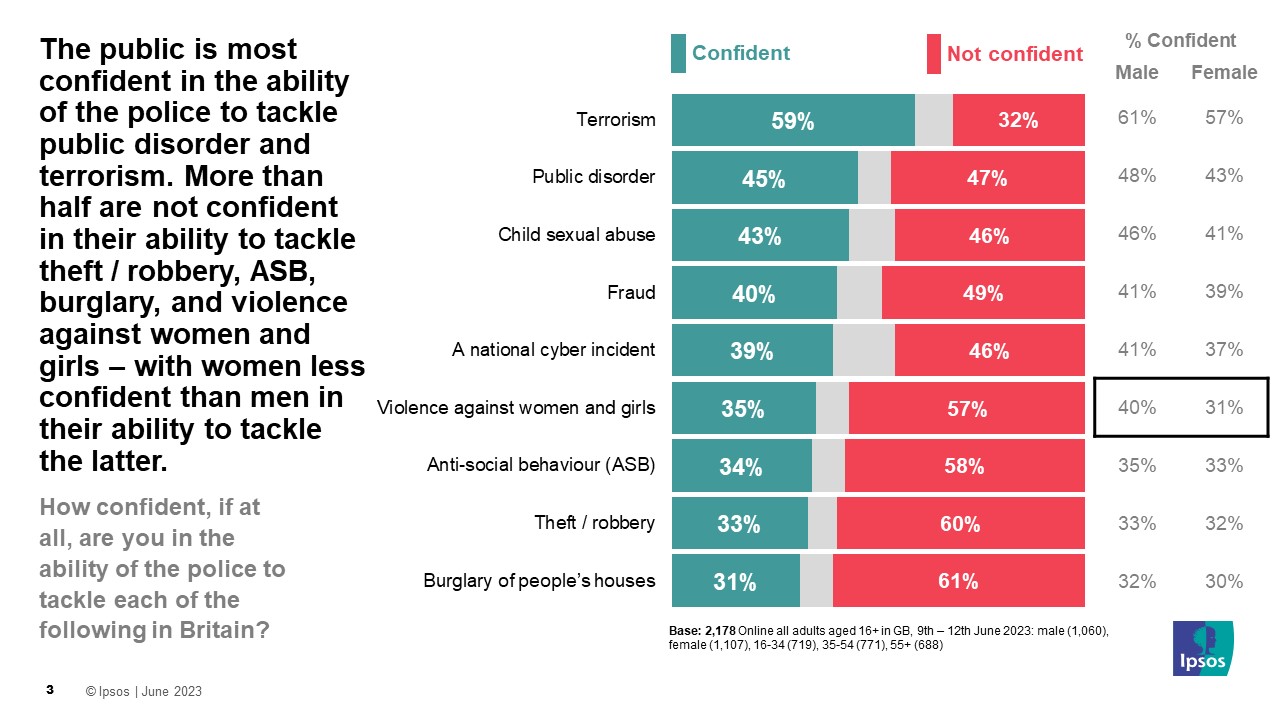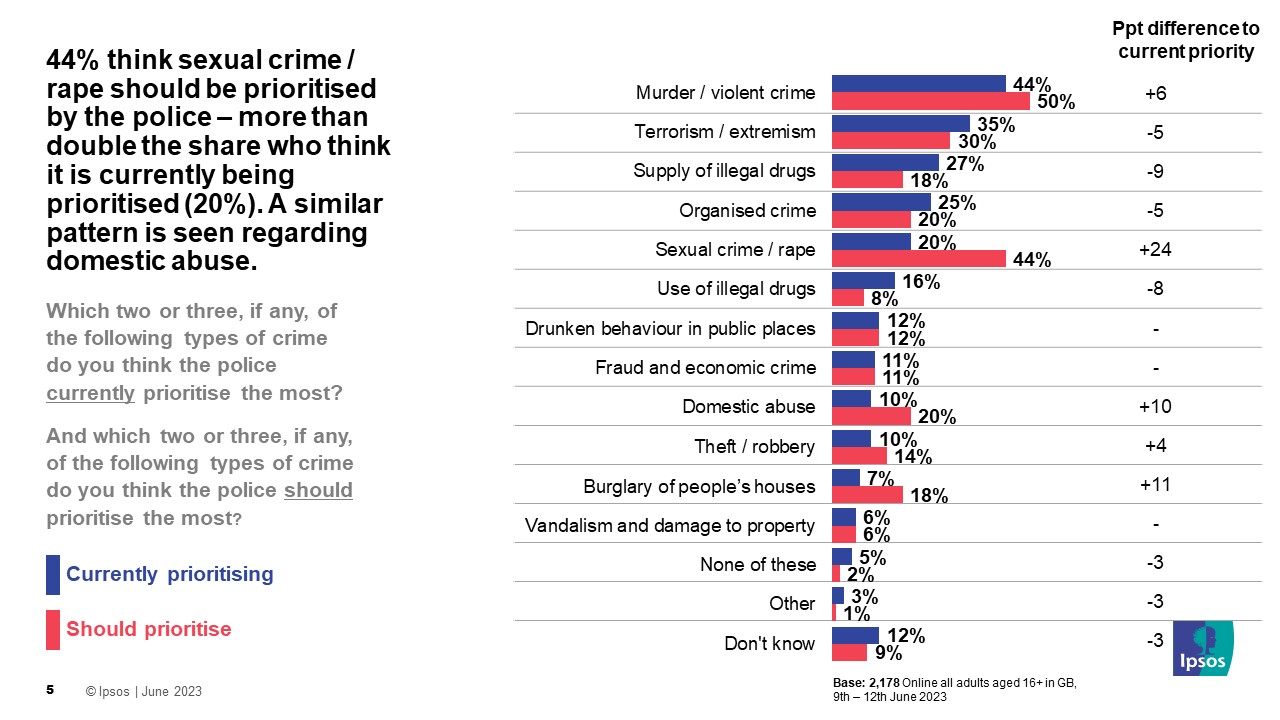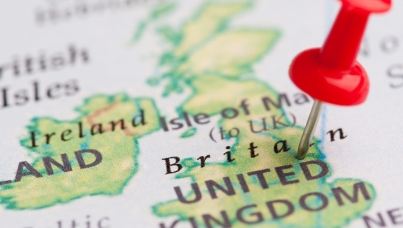More Britons rate the standard of policing in Britain as bad than good – with few expecting it to improve
- More people rate the current standard of policing in Britain as bad (36%) than good (31%) and just 20% expect it to get better in the next 12 months
- Only 35% are confident the police can tackle violence against women and girls, with women less confident than men (31% vs 40%)
- Half (52%) think government spending on the police should be increased.
New polling from Ipsos shows that public opinion is divided on the current standard of policing in Britain, with more people saying it’s bad (36%) than good (31%). A further 3 in 10 (29%) say it’s neither good nor bad. The public are not optimistic that standards will improve in the next 12 months either: only 1 in 5 (20%) expect improvement compared with 26% expecting it to get worse, and 44% expecting it to stay the same.
When asked about confidence in the police’s ability to tackle various issues in Britain, the only area where substantially more people were confident than not, was tackling terrorism (59% ‘very’ or ‘fairly confident’; 32% ‘not very’ or ‘not at all confident’). The public was more divided on the police’s ability to tackle public disorder (45% confident vs 47% not confident) and child sexual abuse (43% vs 46%). They were least confident in the police’s ability to tackle domestic burglary (61% not confident vs 31% confident). Men expressed greater confidence than women across most areas, most noticeably in their assessment of the police’s ability to tackle violence against women and girls (40% of men vs 31% of women were ‘very’ or ‘fairly confident’).

Half of Britons (52%) think government spending on the police should be increased, with just 11% saying it should be decreased and 22% saying it should stay the same. A further 15% were unsure. Support for more spending on the police increased with age, to 64% of those aged 55+ compared with 41% of 16-34 year-olds.
The public think the police should give higher priority to sexual crimes and domestic abuse
When presented with a list of types of crime and asked to identify the 2-3 they think are currently prioritised by the police, the most commonly mentioned were: murder / violent crime (44%), terrorism / extremism (35%), supply of illegal drugs (27%), and organised crime (25%).
Overall, the areas people felt the police does prioritise were generally in line with the areas they felt they should prioritise. However, more than twice as many said sexual crime / rape should be a police priority (44%) than feel it is currently prioritised (20%). A similar pattern is apparent for domestic abuse (20% thought it should be prioritised, 10% that it is a current priority), and for domestic burglary (18% vs 7%, respectively).

More women than men want the police to prioritise sexual crime / rape (50% of women vs 38% of men) and domestic abuse (26%, vs 14% of men). Younger people were also more likely than older age groups to say the police should prioritise sexual crime/rape and domestic abuse. By contrast, those aged 55+ were more likely to say the police should prioritise murder / violent crime (58%, vs 46% among younger age groups) and terrorism (37%, vs 27% of those 16-34 and 25% of those 35-55).
Trinh Tu, Managing Director of Public Affairs at Ipsos, said:
Our data highlights public concern around both police performance and policing priorities in Britain, with limited public optimism that standards will improve in the next 12 months. The lack of public confidence cuts across a range of crimes (with the notable exception of terrorism) and is particularly noticeable among women. And although overall, the areas the public believe the police prioritise are largely in line with what they want them to prioritise, sexual crimes are a striking exception. Demonstrating that this is a priority area may help to instil more confidence in the police among women.
Technical note:
Ipsos interviewed a representative quota sample of 2,178 adults aged 16+ in Great Britain. Interviews took place on the online Omnibus between 9th-12th June 2023. Data has been weighted to the known offline population proportions. All polls are subject to a wide range of potential sources of errors.



